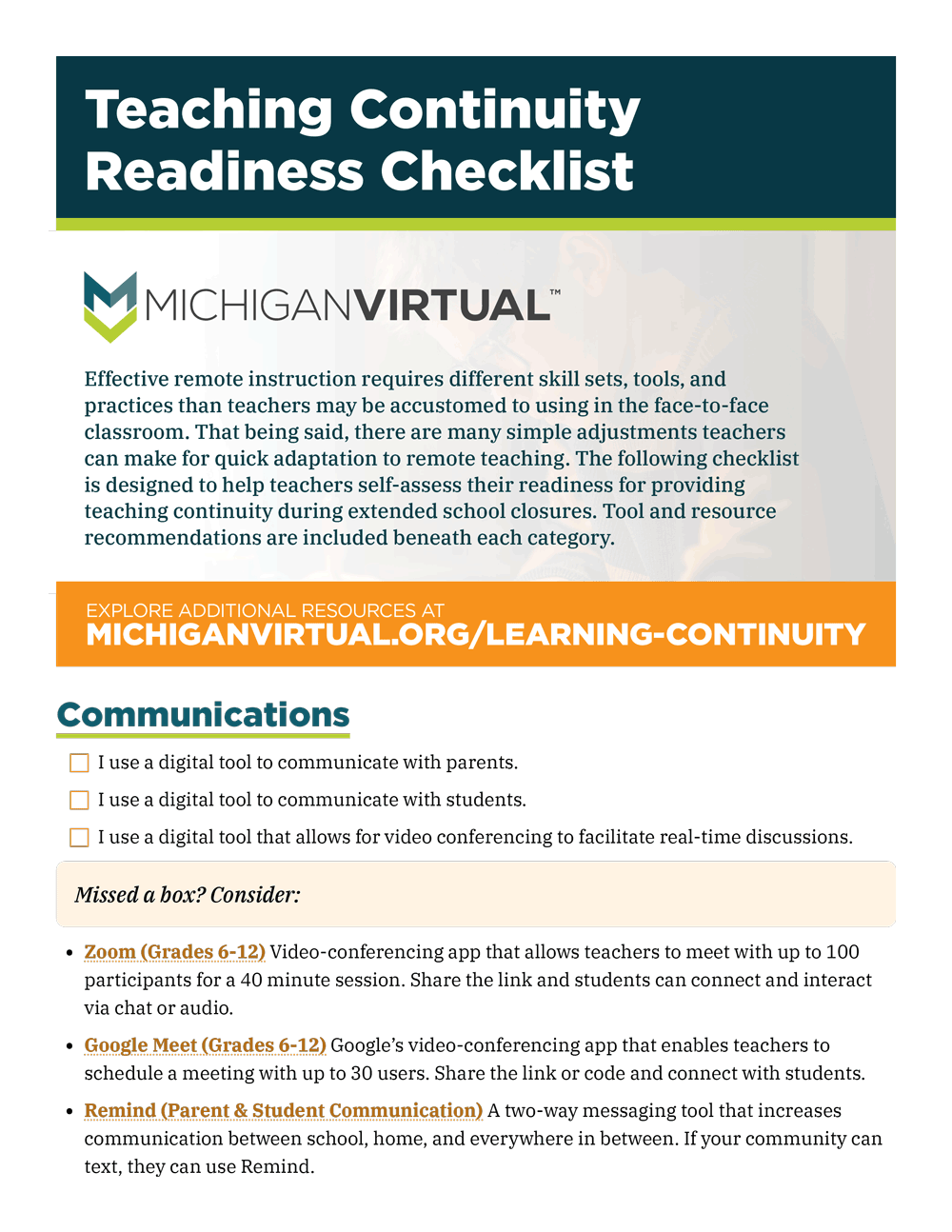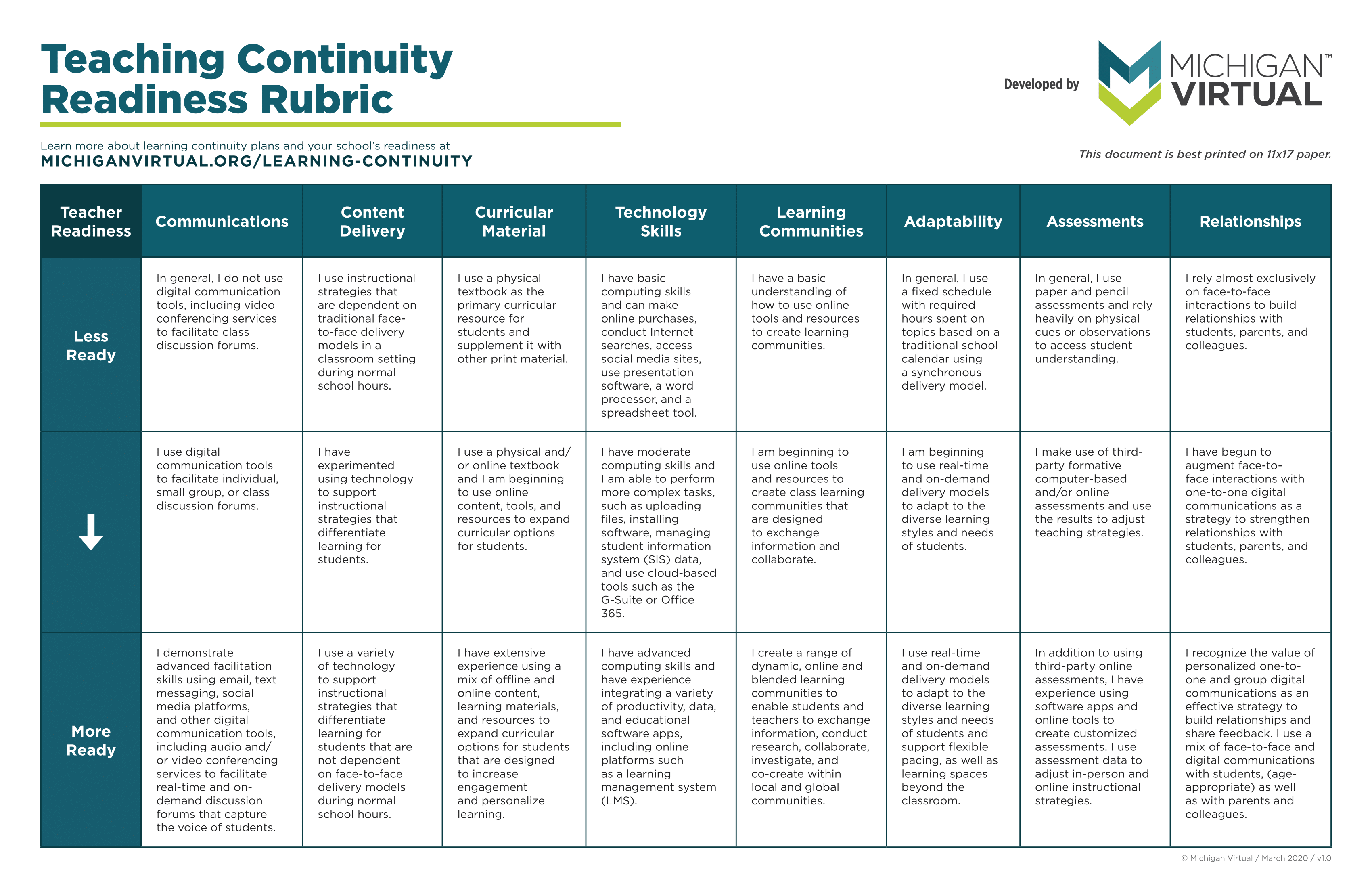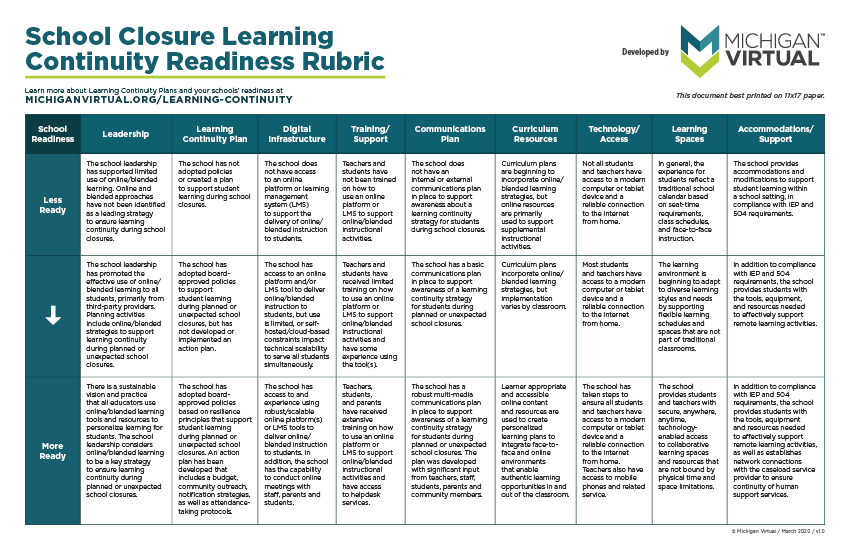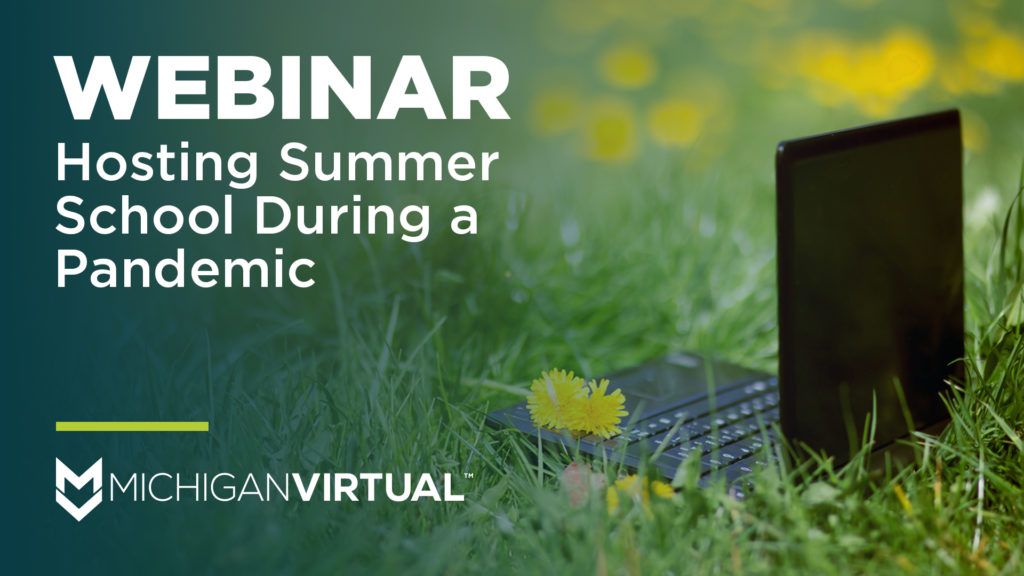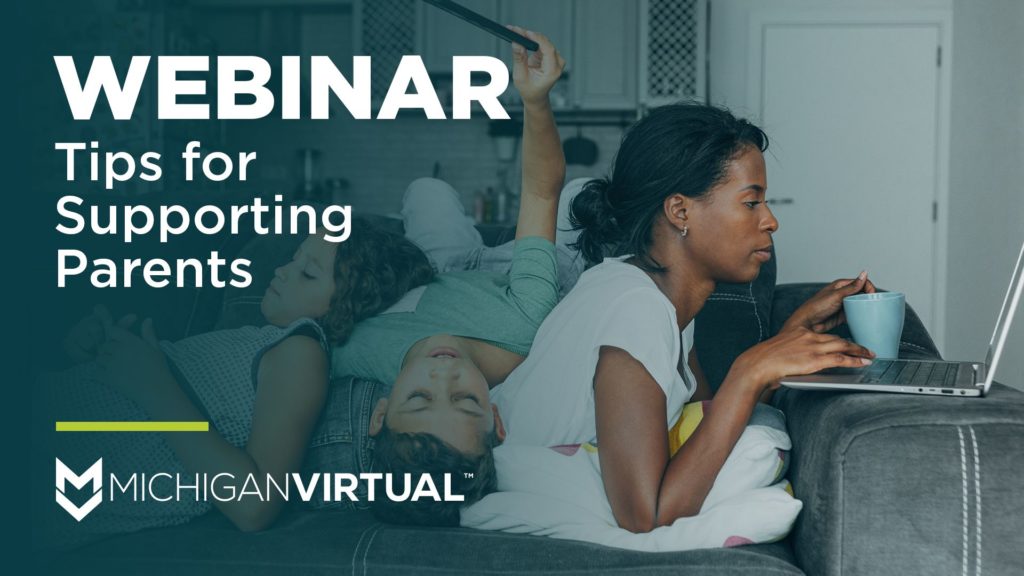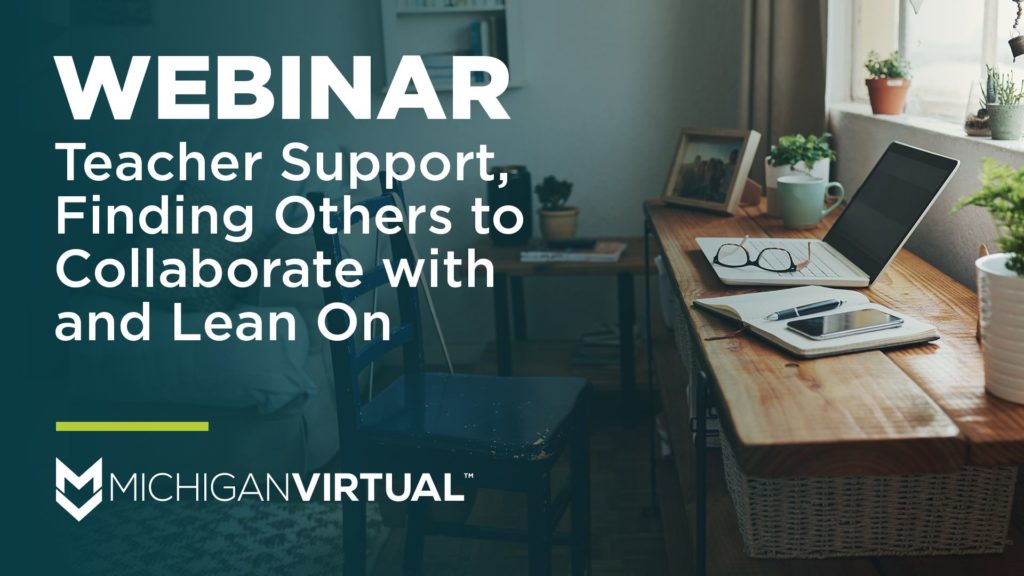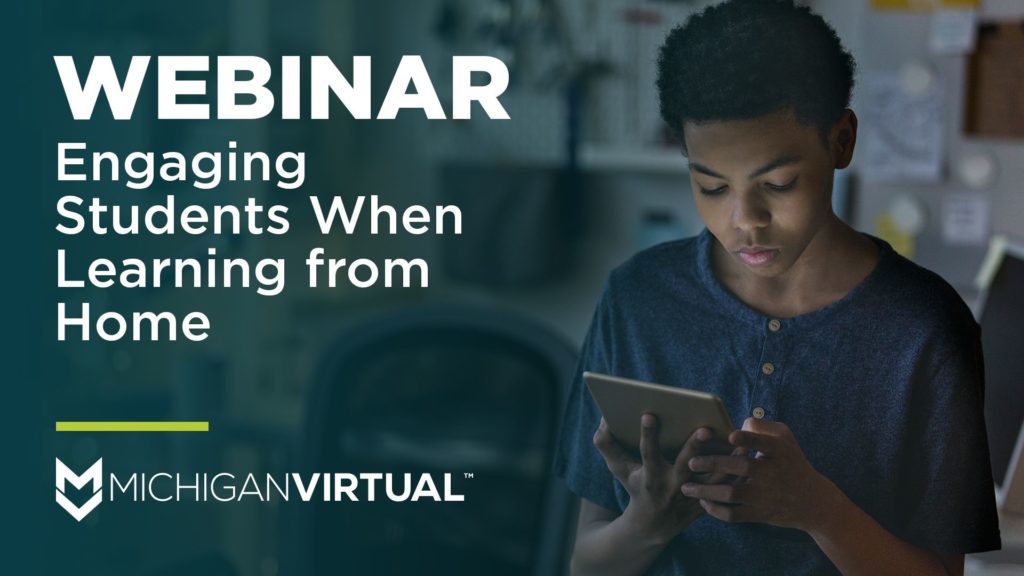Free access to Michigan Virtual course content during school closures
For the duration of these closures, Michigan Virtual will be offering the content of over 70 of our high-quality online courses FREE to educators and parents as a resource to supplement student learning.
This course content includes all digital lessons; however, it does not include assessments and is non-credit bearing. It is intended to provide educators and parents with enrichment materials they can use to keep students engaged and learning during school closures.
The free access to this course content will end after September 30, 2023.
Organize student learning with our weekly checklist template
If you’re using our free course content to supplement student learning during school closures, check out this weekly checklist template to help you organize activities for your student(s).
This template will help you organize the content you want to provide your students, instructions on what they should do with the content, and lastly how/if you want them to assess their understanding.


